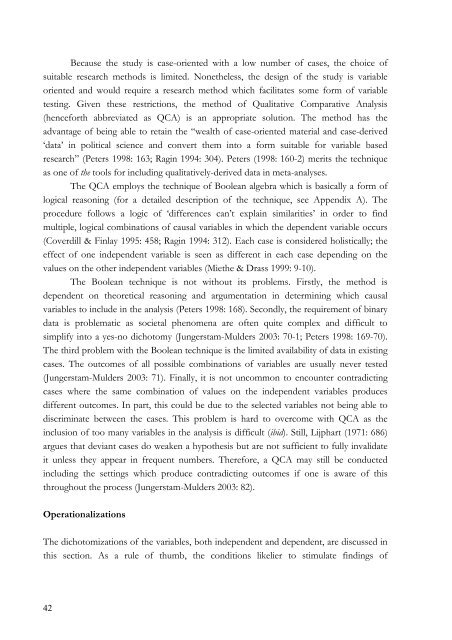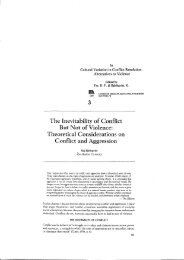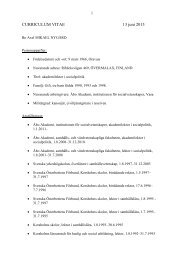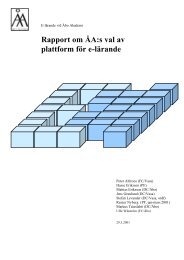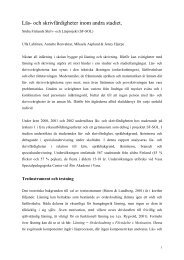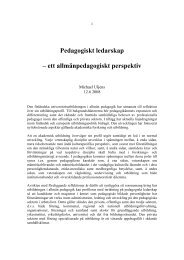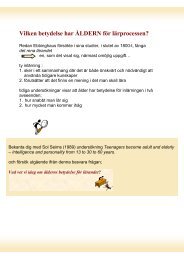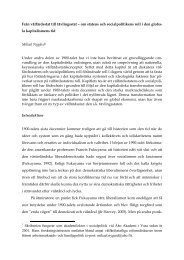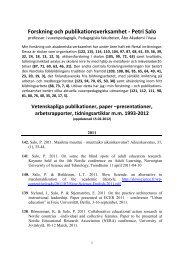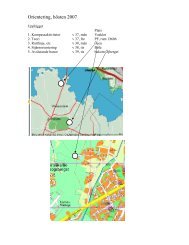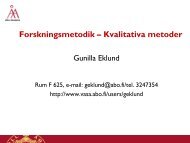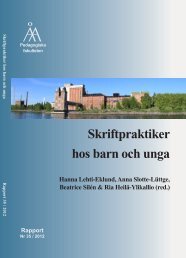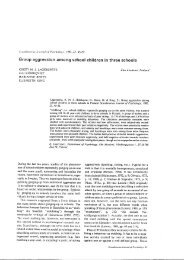Parties, Candidates and Citizens On-Line - Åbo Akademi
Parties, Candidates and Citizens On-Line - Åbo Akademi
Parties, Candidates and Citizens On-Line - Åbo Akademi
Create successful ePaper yourself
Turn your PDF publications into a flip-book with our unique Google optimized e-Paper software.
Because the study is case-oriented with a low number of cases, the choice of<br />
suitable research methods is limited. Nonetheless, the design of the study is variable<br />
oriented <strong>and</strong> would require a research method which facilitates some form of variable<br />
testing. Given these restrictions, the method of Qualitative Comparative Analysis<br />
(henceforth abbreviated as QCA) is an appropriate solution. The method has the<br />
advantage of being able to retain the “wealth of case-oriented material <strong>and</strong> case-derived<br />
‘data’ in political science <strong>and</strong> convert them into a form suitable for variable based<br />
research” (Peters 1998: 163; Ragin 1994: 304). Peters (1998: 160-2) merits the technique<br />
as one of the tools for including qualitatively-derived data in meta-analyses.<br />
The QCA employs the technique of Boolean algebra which is basically a form of<br />
logical reasoning (for a detailed description of the technique, see Appendix A). The<br />
procedure follows a logic of ‘differences can’t explain similarities’ in order to find<br />
multiple, logical combinations of causal variables in which the dependent variable occurs<br />
(Coverdill & Finlay 1995: 458; Ragin 1994: 312). Each case is considered holistically; the<br />
effect of one independent variable is seen as different in each case depending on the<br />
values on the other independent variables (Miethe & Drass 1999: 9-10).<br />
The Boolean technique is not without its problems. Firstly, the method is<br />
dependent on theoretical reasoning <strong>and</strong> argumentation in determining which causal<br />
variables to include in the analysis (Peters 1998: 168). Secondly, the requirement of binary<br />
data is problematic as societal phenomena are often quite complex <strong>and</strong> difficult to<br />
simplify into a yes-no dichotomy (Jungerstam-Mulders 2003: 70-1; Peters 1998: 169-70).<br />
The third problem with the Boolean technique is the limited availability of data in existing<br />
cases. The outcomes of all possible combinations of variables are usually never tested<br />
(Jungerstam-Mulders 2003: 71). Finally, it is not uncommon to encounter contradicting<br />
cases where the same combination of values on the independent variables produces<br />
different outcomes. In part, this could be due to the selected variables not being able to<br />
discriminate between the cases. This problem is hard to overcome with QCA as the<br />
inclusion of too many variables in the analysis is difficult (ibid). Still, Lijphart (1971: 686)<br />
argues that deviant cases do weaken a hypothesis but are not sufficient to fully invalidate<br />
it unless they appear in frequent numbers. Therefore, a QCA may still be conducted<br />
including the settings which produce contradicting outcomes if one is aware of this<br />
throughout the process (Jungerstam-Mulders 2003: 82).<br />
Operationalizations<br />
The dichotomizations of the variables, both independent <strong>and</strong> dependent, are discussed in<br />
this section. As a rule of thumb, the conditions likelier to stimulate findings of<br />
42


